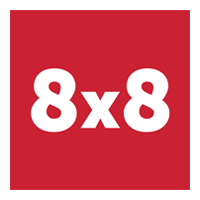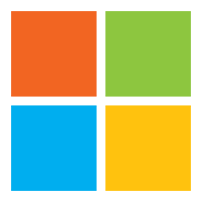Unified Communications as a Service (UCaaS) is a cloud-based delivery model that provides a variety of communication and collaboration applications and services.
As businesses continue to adopt digital transformation, the demand for UCaaS solutions has skyrocketed. These solutions not only streamline business communication but also enhance collaboration, improve productivity, and reduce operational costs.
Here are our top picks for the best UCaaS providers in 2023:
- Nextiva: Best for multi-location operations (Read more)
- RingCentral: Best for large enterprises (Read more)
- 8×8: Best for integrated communication solutions (Read more)
- Vonage: Best for flexible communication options (Read more)
- Cisco Webex: Best for highly secure communications (Read more)
- Zoom: Best for remote teams (Read more)
- Microsoft Teams: Best for seamless integration with Microsoft 365 (Read more)
Top UCaaS providers and companies comparison
Before we delve into the details of each provider, here’s how the key UCaaS features compare across the seven providers. It’s worth noting that they all possess these key features although their standout features vary.
| Cloud-based communication | Integrated communication tools | Scalability | Security and compliance | Integration with other business tools | Standout features | Starting price | |
|---|---|---|---|---|---|---|---|
| Nextiva | Yes | Yes | Yes | Yes | Yes | Advanced call management, unlimited calling, free local and toll-free numbers | $23.95/user/month |
| RingCentral | Yes | Yes | Yes | Yes | Yes | Unlimited calls in the U.S. and Canada, automatic call recording, videoconferencing | $20/user/month |
| 8×8 | Yes | Yes | Yes | Yes | Yes | Unlimited calling, team messaging, HD video conferencing | $24/user/month |
| Vonage | Yes | Yes | Yes | Yes | Yes | Unlimited calling and SMS, CRM integrations, team messaging | $19.99/user/month |
| Webex | Yes | Yes | Yes | Yes | Yes | HD video meetings, screen sharing, recording | $14.50/license/month |
| Zoom | Yes | Yes | Yes | Yes | Yes | HD video and audio, built-in collaboration tools, recording and transcripts | $14.99/user/month |
| Microsoft Teams | Yes | Yes | Yes | Yes | Yes | Chat, calls, meetings, Office 365 integration | Included in Office 365 subscription |
Jump to:
- Key features of UCaaS providers
- How to choose the best UCaaS providers for your business
- Frequently Asked Questions (FAQs)
- Methodology

Nextiva
Best for multi-location operations
Nextiva is a top choice for businesses with many offices. It offers a robust UCaaS platform that integrates voice, video, instant messaging, and collaboration in a single solution.
Nextiva’s advanced call management features, including auto-attendant and call routing, make it easy to manage calls across different sites. The platform also includes unlimited calling and free local and toll-free numbers, making it a cost-effective solution for businesses of all sizes.
Pricing
When paid annually, Nextiva’s pricing starts at $23.95 per user per month for a team of 1-4 users for the Essential plan, while the Professional and Enterprise plans cost $27.95 and $37.95 respectively. The three plans are priced as $30.95, $35.95, and $45.95 when billed monthly. That pricing decreases per user at tiers of 5-19, 20-99, and 100+ users.
Key features
- Advanced call management features like auto-attendant and call routing make Nextiva an ideal choice for businesses with multiple locations.
- Unlimited calling is included in all Nextiva plans, making it a cost-effective solution for businesses with high call volumes.
- Free local and toll-free numbers are included with Nextiva, further enhancing its value for businesses.
Pros
- Comprehensive UCaaS solution integrating voice, video, instant messaging, and collaboration.
- Advanced call management features ideal for businesses with multiple locations.
- Cost-effective with unlimited calling and free local and toll-free numbers.
Cons
- Some users have reported that the mobile app could be improved.
- The platform may be complex to set up initially.

RingCentral
Best for large enterprises
RingCentral is a comprehensive UCaaS solution that is particularly suitable to large enterprises. It offers a range of features designed to support large-scale operations, including unlimited calls in the U.S. and Canada, automatic call recording and videoconferencing.
RingCentral also offers integrations with a wide range of business tools, including CRM and productivity software, making it a versatile solution for large businesses with diverse needs.
Pricing
RingCentral’s pricing starts at $20 per user per month paid annually and $30 monthly for the Core plan, $25 per user per month paid annually and $35 monthly for the Advanced plan and $35 per user per month paid annually and $45 monthly for the Ultra plan.
Key features
- Unlimited calling within the U.S. and Canada, making it a cost-effective solution for businesses with high call volumes.
- The automatic call recording feature allows businesses to record calls for compliance, training, or quality assurance purposes.
- Videoconferencing capabilities, allowing businesses to conduct face-to-face meetings regardless of location.
Pros
- Comprehensive UCaaS solution with a wide range of features.
- Unlimited calling within the U.S. and Canada.
- Integrations with a wide range of business tools.
Cons
- Some users have reported occasional issues with call quality.
- The platform may be complex to set up initially.

8×8
Best for integrated communication solutions
8×8 is a UCaaS provider that excels in offering integrated communication solutions. It provides a unified platform that brings together contact center, voice, video, chat, and APIs, making it a one-stop-shop for businesses seeking comprehensive communication tools.
8×8 also delivers particularly seamless integration with Microsoft Teams to enable businesses to extend the capabilities of both platforms.
Pricing
8×8 offers two main pricing tiers for their Business Communication products: X2 at $24 per user per month billed annually and $28 billed monthly, and X4 at $44 per user per month billed annually and $57 billed monthly.
Key features
- Offers a unified platform with integrated contact center, voice, video, chat, and APIs.
- Provides Microsoft Teams integration and other popular business applications.
- Includes advanced analytics for insights into communication patterns and performance.
Pros
- The integrated platform simplifies communication processes.
- Offers a robust set of features that cater to various business needs.
- Advanced analytics provide valuable insights for decision-making.
Cons
- The pricing can be a bit steep for small businesses.
- Some users have reported that the interface can be a bit complex to navigate.

Vonage
Best for flexible communication options
Vonage is a top UCaaS provider that caters to businesses of all sizes. It offers a comprehensive suite of communication tools that are easy to set up and adopt. Vonage’s platform includes voice, messaging, SMS, video, and phone services, all of which can be accessed via desktop or mobile apps. This flexibility enables businesses to stay connected with their clients and teams anytime, anywhere.
Pricing
Vonage Business Communications starts at $19.99 per month per line for the Basic Mobile plan, followed by the Premium plan at $29.99 per month per line and the Advanced plan at $39.99 per month per line.
Key features
- Vonage Meetings allows users to initiate videoconferencing using their desktop or mobile app, making it easy to connect with teammates and customers worldwide.
- Vonage offers SMS, MMS, and Facebook Messenger integration, allowing businesses to communicate and collaborate in customers’ preferred channels.
- Virtual receptionist provides fully customizable and dependable call routing technology for lunchtimes, after-hours, emergencies, and holidays.
Pros
- CRM integration with popular customer relationship management systems such as Salesforce
- Supports a wide range of integrations with popular business applications.
- Offers a comprehensive suite of communication tools.
Cons
- Small businesses may find the cost to be high.
- Occasional issues with call quality.

Cisco Webex
Best for highly secure communications
Cisco Webex is a leading UCaaS provider that excels in delivering secure communication. With its robust set of features, high scalability, and strong security measures, Webex is well-equipped to handle the complex communication needs of various organizations. Webex is suitable for enterprises that require a reliable, secure, and feature-rich UCaaS solution.
Pricing
Webex’s four pricing tiers for meetings, billed monthly, include the Free plan, Meet plan at $14.50 per license per month, Plus plan at $19.95 per license per month, and Suite plan at $25 per license per month.
Key features
- A suite of communication tools including voice, video, messaging, polling, webinars, events, and whiteboarding.
- Provides strong security measures to protect communication data.
- Secure messaging platform organized by workstreams, making it easy to align across different projects and tasks.
Pros
- The robust set of features caters to the complex needs of large enterprises.
- Strong security measures ensure the protection of communication data.
- High scalability allows the solution to grow with the business.
Cons
- New users may find the interface to be a bit complex.
- The pricing can be a bit high for small businesses.

Zoom
Best for remote teams
Zoom is a UCaaS provider that’s popular with remote teams. With its high-quality video and audio, ease of use, and various collaboration features like screen sharing and breakout rooms, Zoom has become the go-to solution for businesses that depend on videoconferencing. This makes it an excellent choice for businesses that conduct a lot of remote meetings, webinars, or online training sessions.
Pricing
Aside from the free Basic plan, Zoom’s plans include Pro at $14.99 per month per user and Business at $19.99 per month per user. Business Plus and Enterprise plans require you to contact Zoom Sales for pricing information.
Key features
- Superior videoconferencing capabilities with high-quality video and audio.
- Provides various collaboration features like screen sharing, breakout rooms and collaborative annotations.
- Zoom Whiteboard for interactive team brainstorming and collaboration.
Pros
- The high-quality video and audio enhance the video conferencing experience.
- The ease of use makes it accessible to users of all technical levels.
- The various collaboration features facilitate effective remote meetings and training sessions.
Cons
- Add-on expenses to use the full feature set can become prohibitive for smaller businesses.
- Occasional connectivity issues as it requires a good internet connection.

Microsoft Teams
Best for seamless integration with Microsoft 365
Microsoft Teams is a UCaaS provider that stands out for its seamless integration with Microsoft 365. It offers a unified communication and collaboration platform that integrates natively with other Microsoft applications like Word, Excel, PowerPoint, and SharePoint. This makes Microsoft Teams an excellent choice for businesses that rely on Microsoft 365 and want a UCaaS solution that can easily fit into their existing workflows.
Pricing
For small and mid-sized businesses, in addition to a free plan, Microsoft Teams offers Teams Essentials at $4.00 per user per month, Microsoft 365 Business Basic at $6.00 per user per month and Microsoft 365 Business Standard at $12.50 per user per month, all as an annual subscription. Teams for enterprise is included with all Microsoft 365 plans.
Key features
- Seamless integration with Microsoft 365 applications.
- Provides a comprehensive variety of communication tools like voice, video, messaging, and team collaboration.
- Teams Rooms delivers hybrid meeting experiences across the workplace.
Pros
- The seamless integration with Microsoft 365 enhances productivity and collaboration.
- Offers a comprehensive suite of communication tools.
- Supports Microsoft Whiteboard, which facilitates effective brainstorming and planning sessions.
Cons
- The interface can be a bit complex for new users.
- Some users have reported occasional issues with connectivity.
Key features of UCaaS providers
UCaaS software offers a variety of features that can significantly enhance business communication, namely cloud-based communication and integrated communications tools — but beyond the bread and butter, they should include scalability, security, and external integration capabilities, too.
Cloud-based communication
UCaaS software is hosted in the cloud, which means businesses can access communication tools from anywhere, at any time. This feature is particularly beneficial for remote teams or businesses with multiple locations. It allows for seamless communication and collaboration, regardless of geographical boundaries.
Integrated communication tools
UCaaS software typically includes a variety of integrated communication tools. This integration allows for seamless communication and collaboration within an enterprise. It eliminates the need for multiple standalone tools, thereby reducing complexity and improving efficiency.
Scalability
As businesses grow, their communication needs often change. UCaaS software is highly scalable, allowing businesses to easily add or remove users or features as needed. This flexibility ensures that the software can adapt to the changing needs of the business, making it a future-proof investment.
Security and compliance
UCaaS providers typically offer robust security features to protect business communication. Additionally, many providers offer compliance solutions for industries with specific communication regulations, such as healthcare or finance. This ensures that businesses can communicate securely, without compromising on compliance.
Integration with other business tools
Many UCaaS solutions can integrate with other business tools, such as CRM or ERP systems. This integration can streamline workflows and improve efficiency. It allows businesses to leverage their existing investments in business tools, thereby reducing costs and complexity.
How to choose the best UCaaS providers for your business
Selecting the ideal UCaaS software is a crucial decision that will be informed by your specific needs. You should consider factors like the size and nature of your business, the specific communication tools you require, the software’s integration capabilities and its security features.
For instance, large enterprises might find RingCentral’s robust feature set and scalability ideal, while businesses of all sizes could benefit from Vonage’s versatility. Meanwhile, teams that rely heavily on videoconferencing might enjoy Zoom’s high-quality video meetings and interactive whiteboarding features.
Ultimately, the best UCaaS software should offer a comprehensive suite of communication tools, be scalable to accommodate your business’s growth, integrate seamlessly with your existing business tools, and provide robust security features to protect your business communication.
Frequently Asked Questions (FAQs)
What is UCaaS and why is it important for businesses in 2023?
UCaaS stands for Unified Communications as a Service. It’s a cloud-based solution that integrates multiple communication channels like voice, video, messaging, and team collaboration into a single communications platform.
UCaaS is important for businesses because it simplifies communication processes, enhances productivity, improves equity, and provides a cost-effective and scalable solution for businesses of all sizes.
Can UCaaS providers offer customizable solutions to fit unique business requirements?
Yes, many UCaaS providers offer customizable solutions that can be tailored to fit unique business requirements. This includes the ability to choose which communication channels to include, the ability to integrate with specific business applications, and the ability to add or remove users as needed.
How does UCaaS ensure the security of business communications in 2023?
UCaaS solutions typically provide strong security measures to protect communication data. This includes data encryption to protect data in transit and at rest, two-factor authentication (2FA) to prevent unauthorized access and compliance with various data privacy regulations to ensure the privacy of communication data.
Methodology
We evaluated the UCaaS providers in this article based on a variety of factors such as the range of features offered, the ease of use, scalability, security, and customer reviews. We also assessed the providers based on their ability to integrate with other business tools.
From the comparison table, it’s important to note that while all featured providers offer the basic features (because the ones who don’t didn’t make the list!), the specifics and quality of these features may vary between providers.
Bottom line: The best UCaaS provider for your business
Choosing the best UCaaS provider can significantly enhance your business’s communication and collaboration. By considering your specific needs and evaluating the features, scalability, and security of different providers, you will find a solution that will help your business thrive in 2023 and beyond.
Whether you’re a small business looking for cost-effective solutions, a large enterprise in need of robust and scalable communication tools, or a company in a highly regulated industry with specific compliance requirements, there’s a UCaaS provider out there that can meet your needs.
Remember, the best UCaaS solution is the one that fits your business perfectly, helping you achieve your communication goals while providing value for your customers and employees.
Don’t get left behind: catch up on the top unified communications trends pushing the industry forward.


